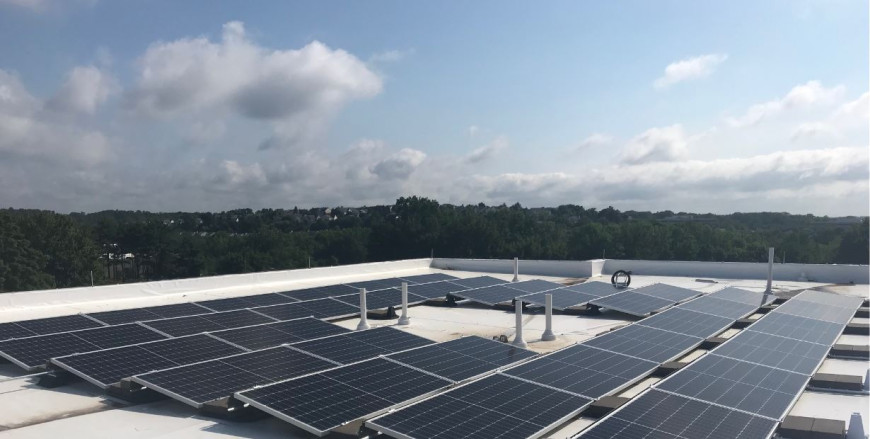Clean Energy Projects
Purchase College commits to increasing clean power technologies and reducing overall energy consumption.
Energy Projects
Combined Heat and Power (CHP) and Energy Storage
The College has partnered with the New York Power Authority (NYPA) and Brenmiller Energy Ltd. to install a Combined Heat and Power (CHP), also known as cogeneration, energy storage system in the Physical Education building at no cost to the college. This project will efficiently utilize heat by-product through capturing and storing exhaust heat to provide all the heating and hot water and generate about 50% of the electricity to the building. The project is expected to increase energy savings and reduce emissions for the college.
New York Higher Education Large Scale Renewable Energy (NY HE LSRE)
Purchase College is a steering member of the NY Higher Education Large Scale Renewable Energy (NY HE LSRE) consortium of 21 public and private higher education institutions for the purchase of large-scale aggregated renewable energy to help meet the statewide goal of having 100 percent carbon-free electricity by 2040 at a price lower than it is paying right now over a time period of at least 10 years. The consortium plans to purchase at least 150,000 megawatt hours of renewable energy, enough to power approximately 23,000 homes a year, to meet greenhouse gas reduction goals and provide academic opportunities for students and faculty.
Community Solar
The College is actively working with the New York Power Authority (NYPA) to support a large-scale renewable energy project on campus. The proposed project would provide solar carports in W1/W2 parking lots at no cost to the college while generating revenue. The revenue generated would result from hosting the site while the developer would sell renewable energy to Westchester County residents. This project will be an excellent demonstration of renewable energy and education to the greater Purchase community.
Lighting Retrofits
Light Emitting Diodes (LEDs) have been installed to new areas of campus since the college has invested in improving lighting in buildings and roadways. Many large-scale lighting projects have been completed in the Library, The Performing Arts Center, academic buildings, housing areas, and along roads surrounding the campus. LED lighting fixtures produce light approximately 90% more efficiently than incandescent lightbulbs and have a much longer lifetime, reducing energy use and waste.
Smart Buildings: Leadership in Energy and Environmental Design (LEED)
LEED buildings focus significantly on energy efficiency, read more information on our LEED-certified buildings and policy on campus. The residence hall Wayback, achieved LEED Silver certification with various features to promote sustainable energy use, including but not limited to, solar panels (PVCs) on the roof, energy-efficient technologies, and an interactive energy dashboard. The dashboard will be important to engage with the building’s constituents to acknowledge the energy use of the building and how to be more conservative.
Reforming the Energy Vision (REV) Campus Challenge
REV Campus Challenge is a statewide initiative for colleges and universities to promote and help build clean, resilient, and affordable energy systems for NYS. Higher education institutions are venues for knowledge, research, and resources which enable us to act as leaders and train the next generation of clean energy leaders. Participating in REV Campus Challenge helps the college aim to reduce greenhouse gas emissions and set and achieve ambitious clean energy goals. This is accomplished by investing in clean energy and implementing energy-efficient technologies, integrating clean energy into curriculum, and campus/community engagement.
Renewable Energy Curriculum
To educate students further on energy efficiency, new curricula has been developed in the Environmental Studies department, including the creation of an “Introduction to Renewable Energy” course. The college’s energy manager will periodically lecture to the class. The “Environmental Policy” course creates awareness and engagement of on-campus operations and has real-world examples of topics discussed in class.
